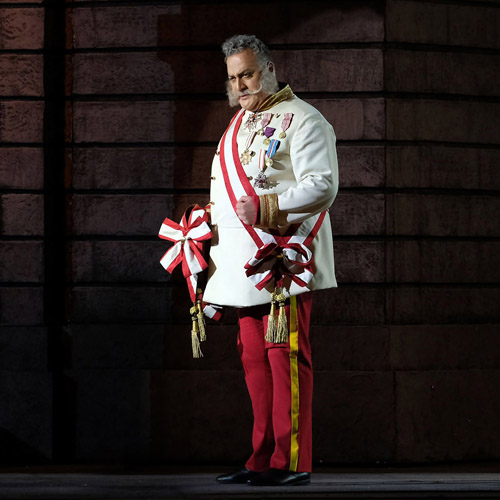
Review
|
13.06.2017
Nabucco – Verona 2017
“This Nabucco production was also important for the international cast: in the title role George Gagnidze, Georgian baritone internationally considered one of the best interpreters due to his wide vocal range, who had performed in Arena six years ago in La traviata. On the eve of the premiere Gagnidze had stated his wish to interpret Nabucco (coiffed and costumed as Franz Joseph) as a strong, authoritative and “powerful” ma, a promise he did not betray.”
Davide Orsato, Corriere del Veneto
“Great performance of baritone Gagnidze”
“ In the title role baritone Gagnidze expresses his art at his best singing with effective, technical and expressive subtleness, with a homogenous timbre and a jagged fraseggio to offer an all-around characterization.”
Gianni Villani, L’Arena
“The internationally renowned and Verdi-experienced Georgian baritone George Gagnidze is a vocally and scenically convincing Nabucco.”
Thomas Migge, Deutschlandfunk
“George Gagnidze in the title role does not manifest a particularly voluminous voice but sings with taste, without forcing, displaying a fine legato and making an attempt at giving a meaning to the text.”
Danilo Boaretto, OperaClick
“George Gagnidze’s comfortable voice delivery, the flexibility of the projection, and the copper nuances that adorns his top contribute to a more than satisfactory interpretation of the title role. The charism of the artist and his great musicality add to these assets [read our columns of 19 June 2016 and 3 February 2011].
Katy Oberlé, Anaclase
“George Gagnidze in this production becomes insane as a result of a gunshot wound to his head. The scene may be a little comic but thanks to the his great experience Gagnidze has not falled into the ridicule. His performance was good, he was incisive in his role and attentive to the details”.
Salvatore Margarone, Musicandosite
“Nabucco/Franz Josef is George Gagnidze who offers a hard, severe king gifted with a certain charisma that exalts his interpretative skills.”
Maria Teresa Giovagnoli, MTG Lirica
Nabucco had the interesting voice of George Gagnidze, in crescendo for effectiveness and stamina, even though he is more prone to introspection (his “Dio di Giuda” was remarkable than royal authority.”
Cesare Galla blog
“…The Nabucco of George Gagnidze displayed a vibrant singing, well controlled in the piano dynamics as well, aimed at restoring the authority and intensity of Verdi’s first great baritone role…”
Del teatro.it
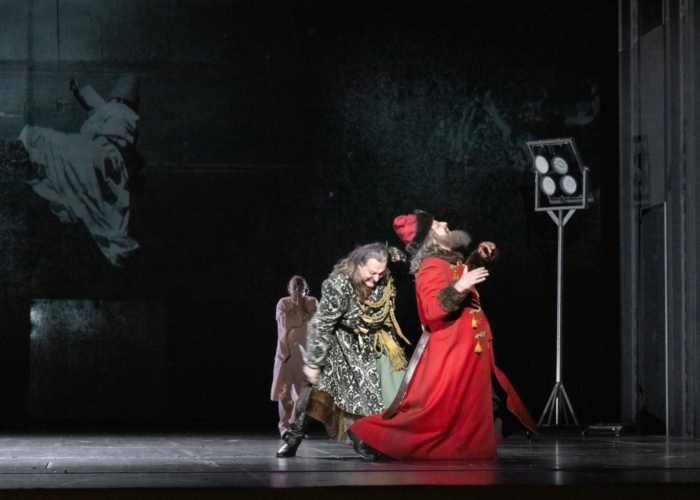
Review
|
27.06.2024
“George Gagnidze is outstanding as Shaklovity” in Berlin
Reviews are brilliant for the new production of Khovanshchina and George Gagnidze's Shaklovity at the Staatsoper Unter den Linden:
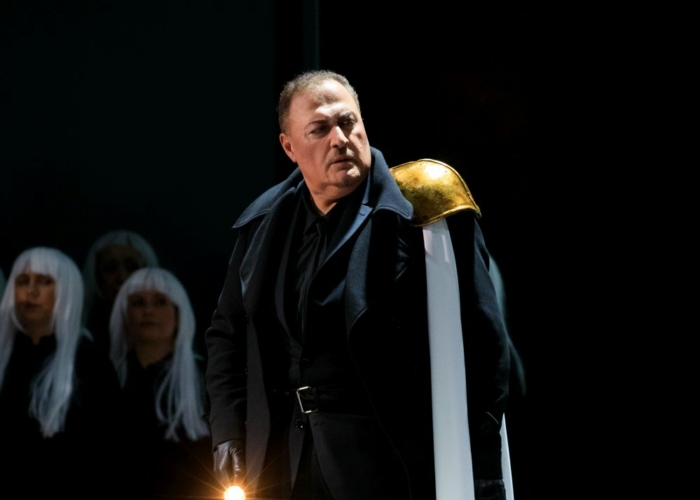
Review
|
01.05.2024
George Gagnidze a Macbeth of “round, harmonically rich vocality” in Bologna
“With Verdi, the Georgian baritone gets along fully: Rigoletto, Nabucco, Miller, Simone are also among his signature roles. He takes on the multifaceted figure of the usurping monarch with a round, harmonically rich vocality, naturally wide-ranged and generous -- at times even almost overflowing -- but well controlled…” Gilberto Mion, Teatro about George Gagnidze's portrayal of Macbeth at the Teatro Comunale of Bologna, April 2024.
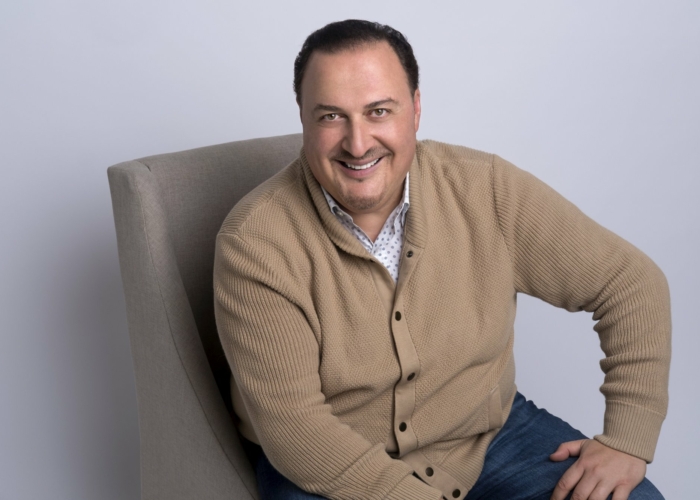
Interview
|
12.04.2024
Interview with GBOpera
George Gagnidze was interviewed by GBOpera. Among the many topics he spoke with Giorgio Bagnoli are his return to Italy, his debut at the Teatro Comunale of Bologna, and the role he is singing there, Verdi's Macbeth.
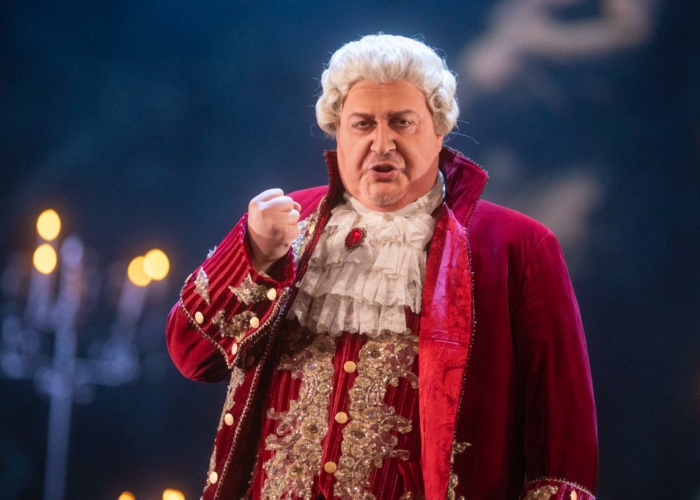
Review
|
28.02.2024
George Gagnidze “delivers a magnificent Scarpia” in Las Palmas
George Gagnidze just brought his celebrated portrayal of Scarpia in Tosca to the Las Palmas Opera in Gran Canaria. Here below you will find a couple of reviews:
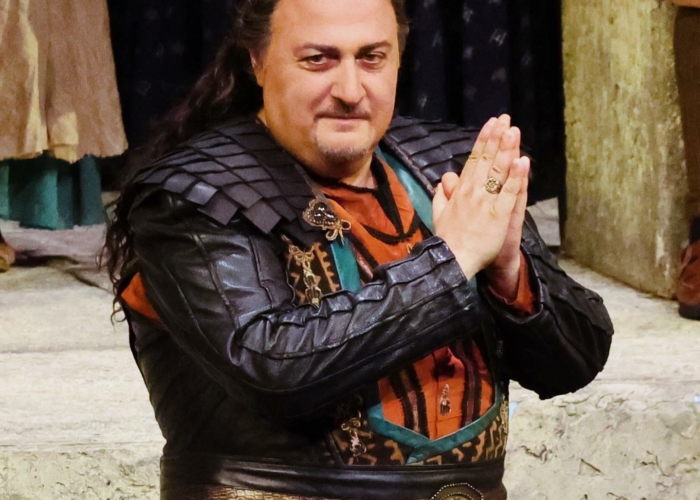
Review
|
20.01.2024
“George Gagnidze excelled” as Nabucco in Live in HD from the MET
Reviews are out for the Live in HD performance of Nabucco from the Metropolitan Opera starring George Gagnidze in the title role:




